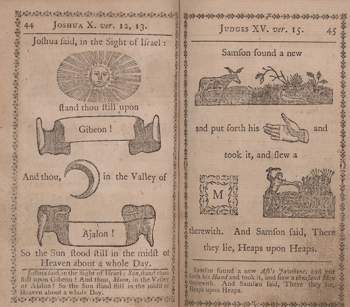What Is Canon?
The canon of Scripture concerns what books are included and excluded (e.g. Enoch, Jubilees and so on) from the Bible. The set of books thought written under God's inspiration can change for a variety of reasons based on who is compiling the writings.
For example, the Catholic Church did not officially accept certain books known as the Apocrypha (which includes Tobit and Judith) as part of their Scriptures until the Council of Trent in the 16th century. What criteria, however, can determine whether certain writings really are from the mind of God and not the imagination of man?
Determining Inspiration
Some of the basic principles for determining the inspiration of a book or writing is in God's word itself. Deuteronomy 13 through 18 tells us that a prophet who says to worship other gods, or whose predictions did not happen, should be ignored.

We should only believe something is a true revelation from God if it agrees with prior revelations, successfully predicts the future or both. Writings thought to be from God, which fail these tests, should be rejected.
Factors that clearly expose some books as being not inspired, and therefore should not be included in the Bible, include the absurd stories, historical errors, and contradictions they contain. The literary quality simply is not very good, and they fail what Josh McDowell might call the "internal evidence" test (we suggest reading his book "The New Evidence That Demands s Verdict").
The Book of Tobit
For example, the book of Tobit describes a story in which a Jewish father, blinded by the dung of a bird falling into his eyes, sends out his son to collect a debt. He gets a heart, liver, and gall of a fish on his journey. He runs into a widow who has married seven times, but had never consummated any of these marriages with her husbands because an evil spirit had killed each husband on their respective wedding nights.
Tobias (the son) marries this widow, and by burning two of the fish parts, drives off the evil spirit called Asmodeus. He then uses the gall from that fish to cure his father's blindness. This story's setting and miracles are absurd. They lack what C.S. Lewis might call "fitness," or overall appropriateness. It is more superstitious than Godly.
Tobit also contains a historical error concerning the age of the father, who would have to be well over 200 years old to have experienced personally the deportation of Israel to Nineveh by the Assyrians, but he is only 102 years old when he dies.
The Book of Judith
The book of Judith contains so many absurdities that even the Roman Catholic sponsored Jerusalem Bible admitted "The book of Judith in particular shows a bland indifference to history and geography."
Canon Guidelines
The traditional Christian scholar Bruce Metzger, in "The Canon of the New Testament: Its Origin, Development, and Significance," gives three basic guidelines that early Christians used for determining their own canon.
1) Agreement with the "rule of faith" or general traditional Christian teaching.
2) General, long-standing usage among many congregations.
3) Apostolic authorship, which inevitably led to the exclusion of post-100 A.D. writings.
Gospel of Saint Thomas
Supposedly inspired books that bear Thomas' name include the Infancy Gospel of St. Thomas, Book of Thomas the Contender and the Acts of Thomas. He seems to have been quite popular with those who sought to have their writings included among those deemed inspired. All of these writings, found near Nag Hammadi in Egypt in December 1945, and are part of a group of 52 books known as the Nag Hammadi library.
All of the Nag Hammadi library were in the Coptic language and the "gospel" of Thomas contains 114 sayings attributed to Jesus. About half of those are quite similar to those found in the inspired four gospels. The rest, say scholars, are similar to sayings from the Gnostic tradition.
There are other troubling problems with the authenticity and claimed inspiration of Thomas' gospel. The book itself does not refer to the divinity of Jesus. In fact, it remains aligned with Gnostic beliefs that deny his divinity. Further Gnostic earmarks in the book are its continual references to Jesus' sayings as "secret" and "mysterious."
The book of Thomas is also completely different in tone and structure from the canonical gospels. It is not a narrative account of the life of Jesus but rather a somewhat rambling account of "sayings" attributed to Jesus. The book does not mention the crucifixion, resurrection, or final judgment and does not mention any understanding that Jesus was the Messiah.
The early church father Eusebius included the Gospel of Thomas among a group of books that he considered "the fictions of heretics."
Books such as Tobit, Judith, Enoch, Jubilees and St. Thomas, while they might be interesting to read, should not be considered some of God's divine revelations to man and therefore not taken too seriously. They should not be the official part of any Bible.